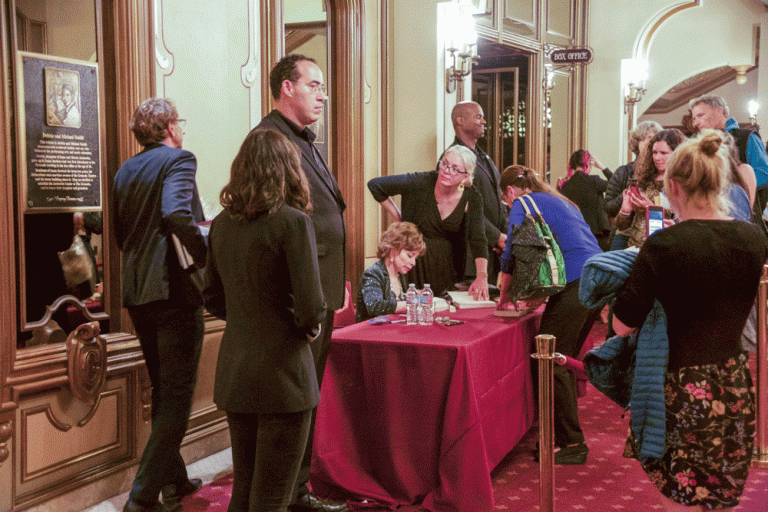
Andrew Delvasto
Renowned Chilean author Isabel Allende visited the Granada Theater in Santa Barbara this past Wednesday to speak on her experiences as what the Los Angeles Times dubbed “the queen of magical realism.”
Allende herself was very lively on the UCSB Arts & Lectures sponsored stage, cracking jokes about the shape of the microphone. She presented the speech with youth and vigor you would not normally expect from someone 74 years young.
She is also one of the most well-known authors of “magical realism,” a style of writing that involves a very realistic and sometimes mundane world, but with a spiritual or supernatural aspect.
Following the 1982 release of her book, “The House of the Spirits,” Isabel Allende exploded onto the international scene — as of 2017 she has sold over 67 million copies. She is regarded as the most prominent female Latin American author. Highly influential, President Barack Obama awarded the Presidential Medal of Freedom, the highest civilian award, to Allende in 2014.
Allende approached her position of fame with humility. “I don’t know how I write,” she said. Coming from an internationally respected author, this claim might be met with some skepticism. But she would go on to explain that her writing is a fluid process. Trying to plan what to write is setting restrictions on your creativity.
When writing, Allende notes how difficult it could sometimes be. She shared her own tradition: she begins every book on Jan. 8. Why? As Allende said, “A book starts with a small idea.” It is on this day she first started writing, and the familiar tradition gives her the mindset needed to hole up and begin world building.
Allende’s writing, the magical realism for which she is so famously known, will often include bits and pieces of the past. It will hint at the history, at how everything that exists continues to do so precisely because of its history. Because she will give glimpses into the what happened before the story, readers are frequently emerged into the universe.
In response to a question about women and her unapologetic feminism during the Q&A section, Allende responded with an endearing truth — the inspiration for one of her female characters is her mother. She described her mother as “open, like a flower.” Allende could breathe life into the character.
“Through me some characters will live in the world.” Allende said, “I do not determine their fate.”
She remarked at how while she does appreciate happy fairy tale endings, spinning the story to fit that mold is not possible.
“I am not an optimist— I am a cautious realist,” Allende said. She understands that characters exist independently of her; their stories are for her to tell, not for her to make.
Allende also talked of how important it is to get a feel for the character. In preparation for her first crime novel, “Ripper,” she once spent three days travelling with a former Navy SEAL to understand who the character would be, only for the him to not get the happy ending that many thought he deserved. Rather, she allowed the character to receive his own ending, independent of what people think should happen to him.
Allende believes that every individual has a story to tell, that every person has an account worth sharing, and that every human has a history. Through her writing, she plans to share these stories and bring light to the intimate experiences of every character.
She spoke with candor on her personal experiences and on her views of the changes happening within society. She spoke with an appreciation for the story of all individuals. She told of how beautiful life can be, and how much more special the present is for those who actively enjoy it.
“Everybody has a story,” Allende said, “and they need to be told.”
















